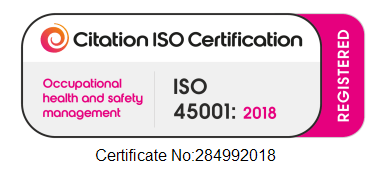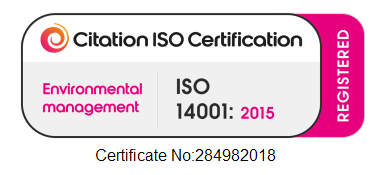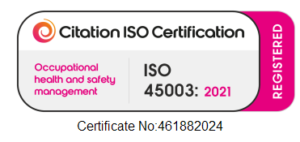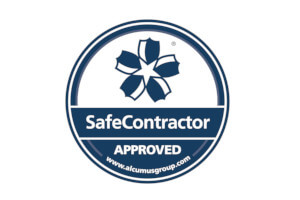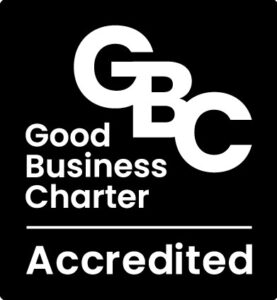
Read on to discover more about what supplier management involves, its significance, and how it can boost your processes and get better results.
What is supplier management, exactly? Supplier management means organising and getting the best out of the companies that provide you with the external services you need.
You don’t just watch over supplier relationships. You choose the right ones, agreeing on how you’ll work together.
It’s paramount to check in to see if they’re keeping up their end of the deal. Make sure that supplier performance is up to scratch – it’s a bit like managing a team.
You want everyone to play their part, so you choose the best players. Then decide how you’ll work together, check in on how they’re doing, and make sure they stick to the game plan.
When everything clicks, a strong supply chain helps you hit your objectives with some innovative ideas and first-class quality.
And if you’re not happy with their work, perhaps it’s time for a change. Out of frequent business-to-business service buyers, 80% change suppliers once every two years (at least) if they fall short of expectations, according to Accenture.
In other words, supplier relationship management is simply about getting the best from your providers so your business can excel.
Why is managing supplier relations essential?
Getting your supplier management system just right is vital. That’s because we live in a world where everything’s connected and the business scene never stands still.
We’re not just talking about saving a few pounds here and there. We’re talking about making sure everything’s up to scratch, that the quality is spot-on, and you aren’t caught by surprise by any unforeseen glitches.
When you get into the finer details of managing your suppliers in the right way, make sure every piece of the puzzle fits correctly.
Smart thinking goes a long way – it boosts your productivity so you’re ahead of the curve. For an example of how visual cues can enhance workplace efficiency, take a look at our insights on visual management examples in the workplace.
The supplier management process
Handling suppliers involves a few key steps, each as important as the last:
#1 Qualification
Firstly, identify and vet suppliers thoroughly. Do they meet your company’s needs?
Are they trustworthy? How capable are they?
Are they compliant with industry standards? In doing so, you’re guaranteeing they can provide the quality you need from them.
#2 Segmentation
Every supplier is different. So, categorise suppliers based on their significance to your business.
This is helpful, as it prioritises your management efforts. You get to focus on the ones most integral to your operations.
#3 Partnership
The key to successful supplier management is building solid relationships. Collaborating with your suppliers entails working together to boost products.
It also involves problem-solving and innovating. This then creates a win-win situation for both parties.
#4 Assessment
Supplier performance management is a critical step. So, examine their:
- Delivery time
- Quality of service
- Cost management
- Reliability
Assessment assists in pinpointing areas for improvement so your suppliers constantly meet, if not exceed, your expectations. You could use supplier management software for this.
This ongoing process helps sustain high standards and nurtures a culture of continuous improvement and accountability among your suppliers.
If you’re in the retail sector, understanding how this aligns with current trends can be critical. Explore our take on luxury retail trends to see how supplier management plays into the latest industry shifts.
The benefits of effective supplier management
With your business getting bigger, your list of suppliers is sure to grow. Keeping a keen eye on them means you can stay on top of things and make sure everyone’s pulling their weight.
Having clear conversations and a straightforward supplier lifecycle management process in place means everything should work smoothly.
- Cost savings: Choosing the right supplier can be the most cost effective and efficient solution for your business if they provide a service you don’t have in-house. That means more cash saved and a better-looking bottom line for your business.
- Quality: Keeping in touch with your suppliers means you both know what you’re going for, quality-wise. Talking frequently and working with each other means everything you get should just carry on improving.
- Better risk management: Getting smarter about supplier management risks helps avoid any procurement pitfalls. Joining forces with suppliers you can count on ensures you’re getting high quality, reliable goods and services.
- Better relationships: Ultimately, getting on well with your suppliers is key. These relationships are built on trust, transparency, and shared goals.
You might even get some exclusive deals, priority service, and access to innovation. Plus, discussing things thoroughly means you can sort out any glitches together.
Need some tips on keeping things professional and collaborative in the workplace? Don’t miss our handy guide on office etiquette – dos and don’ts for employees.
Supplier management guide
Thinking carefully about how you handle suppliers can make your business stronger, smarter, and quicker.
#1 Communicate clearly and effectively
Having a proper discussion is fundamental in getting on well with your suppliers. Keep the lines of communication open, simple, and frequent so you’re always on the same page.
This ensures you evade any misunderstandings. Also, you’re both more likely to aim for similar targets and resolve any difficulties quickly.
When you’re aligned on goals together, you can determine what’s working, talk about any hurdles, and spot chances to do things even better.
#2 Develop a supplier assessment program
Set up a way to check how suppliers are doing. You have a list of what you want from them – so now, you want to see how they stack up against that criteria.
For example, here is a comprehensive office cleaning checklist. This is a good way to think about a holistic approach to cleaning so that nothing falls through the cracks.
Similarly, if you’re using a supplier to help you move offices, first come up with a complete list assessment criteria. Here is our moving offices checklist.
Having frequent catch-ups is a brilliant way to keep the conversations going so your partnership grows stronger. Everyone will be keen to keep on improving.
#3 Work out a fair agreement
When you’re negotiating an agreement, aim for fairness and transparency. Lay out what you expect from each other and how you’ll decide if everyone’s delivering.
Reaching an agreement that everyone’s happy should ensure there’s no room for mix-ups or quarrels down the line.
#4 Plan ahead to mitigate risk
Keep an eye on how your suppliers are doing – this doesn’t just mean ensuring they deliver on time or keep the quality up. Supplier risk management involves detecting any bumps on the road before they trip you up.
Keeping an eye on things helps you tackle problems early on so they don’t turn into bigger ones. If you’re always one step ahead, you won’t be left struggling.
And always have a plan B – that way, you’re always ready for whatever twists and turns arise. You’ll be prepared for any unexpected surprises.
Final thoughts: Supplier management
We get it – supplier management can be complex. Thankfully, the team here at Think FM focuses constantly on making our commercial cleaning service exceptional and we have the specialist commercial office cleaners London businesses require.
With more than 20 years of experience, we set standards that are second-to-none. Our boutique retail cleaning service includes all you’ll ever need.
With cleaners available seven days a week, regular checks from management – and the manager’s mobile number if you need it – we’re one supplier you don’t need to worry about!
If you’re looking for an experienced daily office cleaning company in London, or for more information about our services, please get in touch.
share this article



